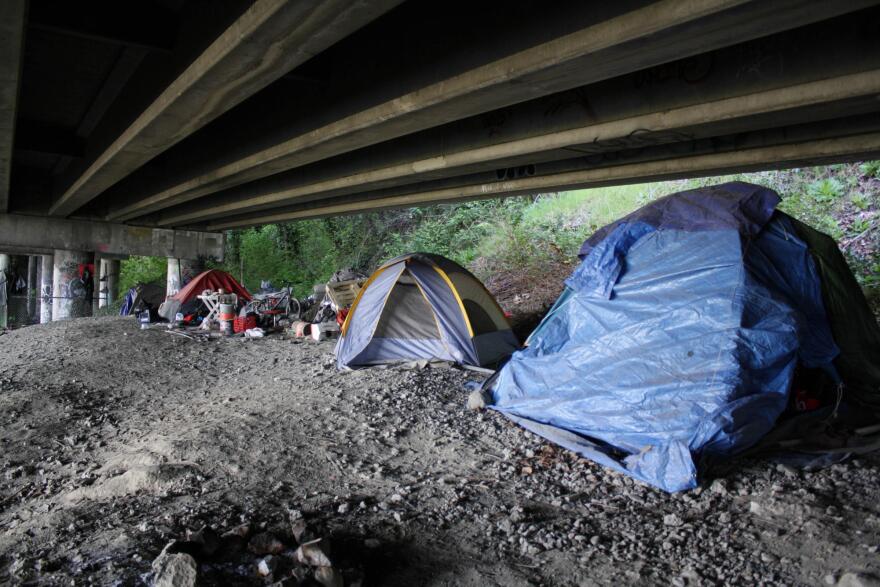Almost nobodyprovides outreach and services in the Jungle, the homeless encampment under Interstate 5. Most city-funded outreach workers won't go there because of safety concerns.
But that's about to change. The city of Seattle is planning what they're calling an intense period of outreach in the Jungle.
Seattle City Councilmember Sally Bagshaw heads the human services and public health committee. She said the mayor's office is gearing up to get people and services into the Jungle.
"The mayor's office is going to be contracting with the Union Gospel Mission, who have relationships already established with many of the people that are living there now, and provide opportunities for them to leave. And this is going to take several weeks' worth of outreach," Bagshaw said.
Bagshaw said the city also plans to send in people to help clean up trash, used needles and human waste in the area under the freeway.
The city is not releasing details about planned outreach just yet. We still don't know when it will start or what this "intense outreach" will look like. But Bagshaw has her own ideas about what needs to happen.
To start, she wants to get rid of the stigma by no longer calling the camp "the Jungle."
"Words matter and I'm going to be more considerate," Bagshaw said.
She also wants to see comprehensive services offered to people living under I-5. She said mental health services and addiction treatment services need to be offered. The city also needs to ensure that, if they're asking people to leave the camp there's somewhere else for them to go.
"You can't just expect them to hope in their truck and drive off to some other city. They don't have a truck. They don't have a place to go. So we've got to make sure we've got sanctioned places for people to be," she said.
Bagshaw said that also means drastically changing Seattle's shelter system. The system right now doesn't work for many people living under the freeway.
"We have to recognize that putting someone in a shelter for a 10 or 11 hour stay, separating them from their partner, loved one and pet is not going to work," she said.
Bagshaw wants to see 24 hour shelters set up in Seattle. She also said it's unrealistic to think that everyone living under I-5 will leave immediately. To begin with, she said making that space more habitable has to be part of the plan.
Bagshaw said crime and undesirable behavior that impacts local communities also needs to be dealt with.
She expects city outreach to start within a matter of weeks.



